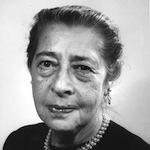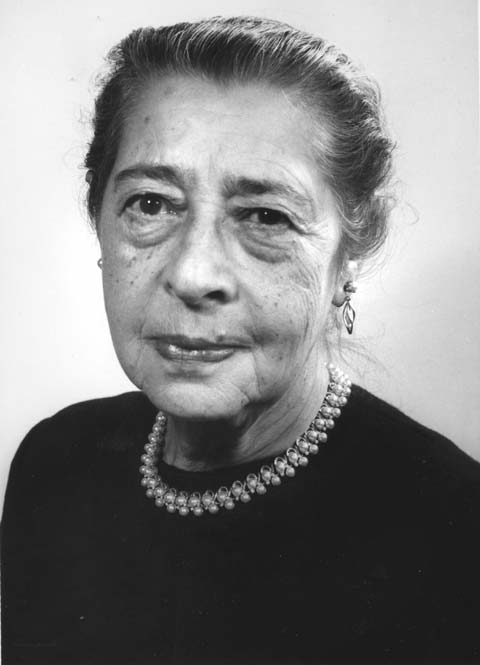
Candles of Song: Rokhl Korn
Yiddish poems about mothers, in memory of my mother, Miriam Pearlman Zucker, 1914-2012.

Photo of Rokhl Korn
Rokhl (Haring) Korn (1898-1982) was born near Podliski, East Galicia on a farming estate. Her love and knowledge of nature is reflected both in her poetry and prose. She was educated in Polish and started writing poetry at an early age in Polish. At the start of the First World War, she and her family fled to Vienna, then returned to Poland in 1918 and lived in Przemysl until 1941. Korn’s first publications were in Polish in 1918 but pogroms against the Jews of Poland after the war led her to write in Yiddish, though she had to be taught to speak, read and write the language by her husband Hersh Korn whom she married in 1920. Her first Yiddish poem appeared in the Lemberger Tageblatt in 1919.
In 1941 Korn fled to Uzbekistan and then to Moscow, where she remained until the end of the war. Her husband, her mother, her brothers and their families all perished in the Holocaust. She returned to Poland in 1946 and in 1948 immigrated to Montreal, Canada where she lived and remained creative until her death. She was a major figure in Yiddish literature and in 1974 she won the prestigious Manger Prize.
Korn was extremely prolific. Her works include: Dorf, lider (Village, poems). Vilna: 1928; Erd, dertseylungen (Land, stories).Warsaw: 1936; Royter mon, lider (Red Poppies, poems). Warsaw: 1937; Heym un heymlozikayt, lider (Home and Homelessness, poems). Buenos Aires: 1948; Bashertkayt, lider 1928–48 (Fate, poems 1928–48). Montreal: 1949; Nayn dertseylungen (Nine Stories). Montreal: 1957; Fun yener zayt lid (On the Other Side of the Poem). Tel Aviv: 1962; Di gnod fun vort (The Grace of the Word) Tel Aviv: 1968; Af der sharf fun a rege (The Cutting Edge of the Moment). Tel Aviv: 1972; Farbitene vor, lider (Altered Reality, poems). Tel Aviv: 1977.
Here, Doyres, by Rokhl Korn, read by Sheva Zucker:



